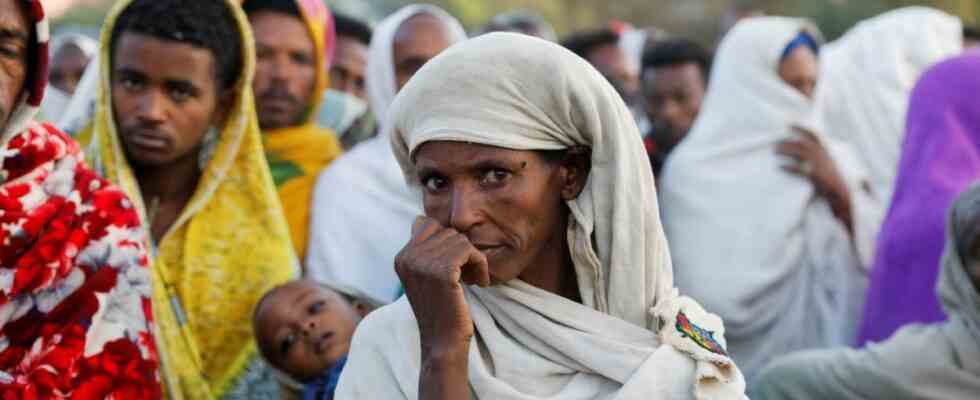Almost to the day two years after the start of the civil war in Ethiopia, the parties to the conflict agreed on a ceasefire on Wednesday evening. Millions of people in the embattled Tigray region in the north of the country are to receive food aid from the United Nations again. The UN has repeatedly accused Ethiopian Prime Minister Abiy Ahmed of using “hunger as a weapon” in the civil war. The conflict is currently considered the most serious war in the world. According to estimates, up to half a million people may have lost their lives, and several million are fleeing and starving.
Former Nigerian President and African Union Special Envoy Olusegun Obasanjo said it was a great day for Ethiopia and the continent. “We have shown that there are African solutions to African problems.” Representatives of both sides had been negotiating in the South African capital of Pretoria for a week, while the war continued with undiminished severity.
The brief action turned into a two-year war
The war in the multinational state began in November 2020 with the attack by the Tigray People’s Liberation Front (TPLF) on a barracks of the Ethiopian federal army. Prime Minister Abiy Ahmed hit back. The conflict had been announced for months after the ethnic group of the Tigray had divided almost all important positions in politics and economy among themselves for almost three decades, although they only make up six percent of the people in the multi-ethnic state.
After years of protests, Abiy Ahmed became the first representative of the largest Oromo people to come to power in 2018. The Tigray felt marginalized and sabotaged the central government under Abiy as he planned a military campaign against the Tigray – despite having just won the Nobel Peace Prize. In November 2020, he only spoke of a short “action” to restore law and order. It has now lasted two years.
“This is not the end of the peace process, but the beginning”
“Our children do not go to school, our hospitals are destroyed, hundreds of thousands have died. I hope that both sides will honor the agreement,” said a Tigray representative. The African Union wants to oversee the implementation of the peace process, which is said to include restoring electricity, internet and banking in the Tigray region, which has been cut off from the outside world for many months.
According to the AU, the disarmament of the parties to the conflict will soon begin. Details remained unclear for the time being. Hundreds of thousands of soldiers from neighboring Eritrea, which was not involved in the negotiations, are also on Ethiopian territory. Numerous territorial claims in the Tigray region have so far not been part of the talks. “This is not the end of the peace process, but the beginning,” said AU negotiator Obasanjo.

